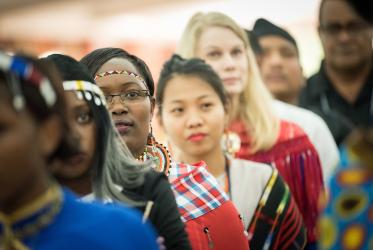The Italian Red Cross estimates the island hosted at least 10,000 newly arrived people last week, many of them coming by boat from Tunisia. The refugee centre was originally built for just 400 people.
The Federation of Evangelical Churches in Italy, which has been involved for years in reception and integration programs for migrants and asylum seekers, expressed concern about the situation.
“We reiterate that the request for asylum is not a crime and cannot be managed with custodial measures,” said the federation in a statement. “Italy and other European countries are able to welcome quotas of migrants and initiate them, also thanks to work on effective integration paths.”
The statement notes that daughters and sons of migrants have created wealth and social capital. “Let's try to think what could reasonably be done with the hundreds of millions of euros used in push-back actions,” the statement reads.
Dr Torsten Moritz, general secretary of the Brussels-based Churches´ Commission for Migrants in Europe, commented: “We are watching the pictures from Lampedusa with a strong sense of concern and solidarity—with those arriving on the island and those welcoming them. However, we have to note that the crisis is mainly created by policy decisions. The EU Tunisia deal of July has created panic among vulnerable refugees and migrants in Tunisia, who are now crossing the Mediterranean in higher numbers.”
Moritz added: “We also have to note that arrivals have some 10 years ago been at an even higher level – at that time proactive state-led search and rescue allowed for de-centralised disembarkation in different ports—which helped in a better response. National efforts obviously need to be accompanied by EU-wide solidarity including a compulsory and significant relocation mechanism and, last not least, extended possibilities for safe passage.”
The World Council of Churches has long expressed solidarity and accompaniment with the refugees and migrants arriving in Italy, and with WCC member churches, the Federation of Protestant Churches in Italy, and related organizations and networks in their efforts to welcome and help refugees integrate into society.








